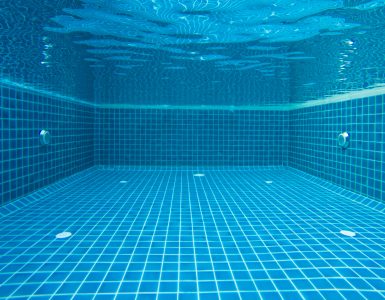Chapter 2 – Pesach Preparation For Those Who Cannot Do It Themselves
Mi’d’Oraisa, a person may not own any form of Chametz on Pesach. This is why the Chachamim enacted Bedikas Chametz on the eve of the 14th Nisan and Biur Chametz on Erev Pesach the following day.
The Mitzva of Bedika applies to anybody who owns a home or apartment (even a single room), rents or leases an apartment or room, and any person who is provided with a designated living area even without payment.
This guide will list the Halachos for one who is unable to perform the Bedika himself as well as acceptable methods of Biur when burning is not an option.
Cleaning the House
- The house should be thoroughly cleaned prior to the Bedikaon the night of the 14th since otherwise it cannot be checked properly.[1]
Some are of the view that one may rely on a Nachri to clean sufficiently well for Pesach.[2] While it is certainly correct for a Jew to tend to the cleaning himself if he is unable to do so (as in the case of a Choleh or disabled person), a Nachri may clean while the Jew supervises as much as possible.
(A Nachri is not trusted regarding Bedikas Chametz – see below for the Halachos of an elderly person living with a non-Jewishcaregiver.)
Bedikas Chametz
- A patient who will be in the hospital during the time of Bedika should appoint a family member to search for and be Mevatel his Chametz at the correct times.[3] Ideally, he should also be Mevatel the Chametz at the time of Bitul.[4]
If no other family members will be home:
If he will not return home until after Pesach and he does not know for certain that there is Chametz the size of a k’Beitzain his home, he is neither required to search for Chametz nor appoint a Shliach.[5] There is an opinion that it is preferable to appoint a Shliach to perform the Bedika.[6]
If he knows that there is a k’Beitza of Chametz in his home and he left within 30 days before Pesach,[7] he is obligated to perform the Bedika and should appoint a Shliach.[8]
- If neither the patient nor his family members will be at home for the entirety of Pesach (such as a patient in the hospital), he may sell all of the Chametz to a non-Jew (and rent the house to him), thus negating the need for Bedika. It is preferable to perform the sale on the 13th of Nissan.[9] However, one who can perform the Bedika should exclude a section of his home from the sale so that he can fulfill the Mitzva.
- A hospitalized patient is not required to perform Bedika in his hospital room.[10] However, he must search the cabinet next to his bed in which he stores his personal belongings, as well as the belongings and clothing themselves.[11] He should not recite a Bracha over this Bedika.[12]
- If he is in a private hospital or convalescent home with a private room, he must perform a Bedika and recite a Bracha.[13]
- The obligation to perform Bedikas Chametz in a nursing home depends upon the following:
If the person has a permanent room that is under his authority, he must search the room and recite a Bracha.[14] The same applies to one living in a private room in a relative’s home.[15]
If the administration is in charge of room allocation and sometimes transfers the residents to different rooms (as in a public nursing home), the Halacha is the same as that of a hospital patient (see 3, above).[16]
- In cases where one is obligated to search for Chametz but is forbidden to light a flame in his room, one may search with a flashlight and recite the Bracha.[17] The same applies to a sick or elderly person who is unable to use a candle (e.g., if he is afraid it will slip from his hand). The flashlight beam should be narrow to illuminate the nooks and crannies in the room.[18]
- A person, such as a Choleh, who finds it difficult to search for Chametz, should ideally search a small section of his house and appoint a Shliach to search the remainder.[19] He should recite the Bracha himself and the Shliach should listen and answer Amen.[20] If he cannot search at all, the Shliach should search the entire house and recite the Bracha.[21] A Shliach may be appointed over the phone.[22]
- Strictly speaking, one may rely on a minor to perform the Bedika; however, it is preferable to appoint one who has reached Bar Mitzva as a Shliach.[23]
- One may not rely upon a Nachri to perform the Bedika.[24] If an elderly or sick person lives alone with a Nachri caregiver and cannot search the house or locate a Jew to perform the Bedika, he must at least ensure that the house is clean and that the Chametz has been removed. He should instruct his caregiverto clean the house of all Chametz and should emphasize that every type of Chametz must be removed from every place that is likely to contain Chametz.[25] If possible, the owner should be present while hecleans even though the cleaning itself does not constitute Bedikas Chametz.
- If there is a person with dementia in the house, it should be searched with extra care since he may have left Chametz in unexpected places (similar to a child).
Mechiras Chametz
- If a patient in the hospital cannot fill out a form for Mechiras Chametz, he may appoint a Shliach or the Rav to act on his behalf verbally. The Shliach may sell the Chametz himself or fill out a form on behalf of the patient and give it to the Rav who is arranging the sale.[26] If the patient is unable to appoint a Shliach, he can sell his Chametz by sending a “Tofes Harsha’ah” form from a private email address. In a case of great need, one may even fill out a form online.[27]
- Regarding selling Chametz for a demented or unconscious person – see Part 3 -Pesach for Patients with Dementia.
Biur Chametz
- If a person, such as a hospital patient or disabled person, cannot burn his Chametz he may destroy the Chametz by other means, as follows.
- He may pour chemical substances (e.g., bleach), over the Chametz such that it becomes Nifsal me’Achilas Kelev. Care should be taken to pour a significant amount of the substance so that all of the Chametz will be ruined.[28]
- If this is not possible, he may flush the Chametz down the toilet.[29] If there is a sea or river close by, he may throw the Chametz into it[30] but should first crumble it.[31] (If Erev Pesach falls on Shabbos, care must be taken not to move Chametz following the time of Biur since it is Muktza. In that case, he should instruct a Nachri to flush it down the toilet or throw it into the river.)[32]
- If there is no sea or river in the vicinity, he should crumble the Chametz well and throw the crumbs into the wind.[33]
- Throwing Chametz into the public dumpster is considered relinquishing ownership (Hefker). If this was done before the time of Issur there is no need to burn it. However, if possible, a Kezayis of Chametz should be kept to perform the Mitzva of Biur.
- If the dumpster is in a person’s property (such as in his courtyard or the garbage room of the apartment block or building), he should preferably ruin the Chametz (as above) before throwing it away. If he already threw it into the trash, he should pour a sufficient amount of bleach (or similar solutions) into the trash such that all the Chametz inside will certainly be ruined.[34]
- One may give one’s Chametz to a Nachri prior to the time of Issur[35]but should preferably retain some in order to perform the Mitzva of Biur.[36]
- If a person cannot burn his Chametz, it is preferable for him to destroy it himself via the means above rather than to instruct a Nachri to burn it for him.[37] If he cannot destroy it himself, he should instruct the Nachri to burn it since even according to the opinion that he does not fulfill the Mitzva of Biur he must still ensure that no Chametz remains in his possession.
- If he burned his Chametz via a Shliach,he should wait until the time that the Chametz has certainly been burned and recite Bitul.[38] If he does not know the formula or is incapable of reciting it, he should appoint a Shliach to be Mevatel his Chametz.[39] The Shliach should recite, “All leaven that is in the possession of Ploni…”[40]
Chapter 3 – Dentures, Medications, and Non-Jewish Caregivers
Kashering Dentures
- Dentures must be cleaned thoroughly before Pesach from any Chametz embedded in and between the teeth. Some hold that it is sufficient to clean them as one cleans regular teeth[41] whereas others require a form of Kashering. Some require that boiling water be poured over them from a Kli Rishon.[42] Others even require Hagala (placing them in a boiling pot of water).[43] A further view is that it is sufficient to soak them for 30 minutes in a salt solution of 2 parts salt to 1 part water or in vinegar.[44]
If there is concern that boiling water will damage the dentures, some opinions permit pouring hot water over them from a Kli Sheni.[45] After Kashering the dentures, one should avoid eating hot Chametz until (after) Pesach.[46]
- If Erev Pesach falls on Shabbos, some Poskim rule that the Hagala should be performed on Erev Shabbos before midday. The Shabbos meals can then be eaten but he should refrain from eating hot food at (or above) the temperature of Yad Soledes Bo. He should then remove the dentures before the Zman Issur Chametz, clean them thoroughly, and then pour boiling water over them from a Kli Rishon.[47]
- See below (Part 3 – Erev Pesach) that if it will be difficult to clean the dentures from Chametz crumbs, one is permitted to eat boiled Matza for the Shabbos meal.
Medications
- Medications, nutritional supplements, vitamins, and the like are likely to contain Chametz ingredients. These may not be ingested and it may even be forbidden to own them on Pesach. Therefore, one should destroy them or sell them to a Nachri. If a person requires medications for a condition or takes daily pills or supplements for control of his blood pressure, diabetes, heart disease, etc., he should consult with his physician and a Rav.
This is a complex matter that depends on the individual and the medication. A person should not deviate from his regular medical regimen, without first consulting his physician and his Rav. Just as the Torah prohibits Chametz on Pesach, it likewise enjoins us to remain healthy.
- Ointments, injectables, suppositories, eye and ear drops, as well as other medical substances that are applied externally, are not a concern of Chametz.[48]
- Those who take anti-depressants containing inedible Chametz must take them on Yom Tov so they can fulfill the Mitzva d’Oraisa of being joyous. They may not be stringent and refrain from taking them.[49]
- After Pesach, one may buy medications that contain Chametz for a Choleh (even a Choleh sheEin bo Sakana) from one who is suspected of not having sold his Chametz according to Halacha.[50]
Chametz of a Nachri in a Jew’s House
- A non-Jewishcaregiver should not be allowed to eat Chametz in a Jew’s home, even if it is his own, due to Maris Ayin.[51] If hehas a room that is designated solely for his own use that the Jew does not use at all, he may eat his Chametz in that room.[52]
- During Pesach, a person may pay the wages of his non-Jewish caregiver or provide him with money to buy food even if he knows that he will purchase Chametz Gamur with the money.[53] However, he should avoid telling him explicitly to buy Chametz for himself.[54] It is preferable to give him cash rather than allowing him to buy on credit which the Jew will be paying for after Pesach.[55]
- A Jew may not buy Chametz for a Nachri even with the Nachri’smoney.[56]
- A Jew should not send a Nachri to buy Chametz on Pesach that will be eaten after Pesach, even if the Nachri purchases the Chametz with his own money.[57] This applies even if the Jew arranged this with the Nachri before Pesach.[58] Bedi’eved, as long as the Jew did not bring the Chametz into his possession, it may be eaten after Pesach.[59]
- Regarding a room designated for a Nachri caregiver, it is preferable to include it in a sale that will be performed on the 13th of Nisan and thus no Bedika need be performed (since the sale was effected before the obligation of Bedika).[60]
- Disposable utensils are vital for hospital patients over Pesach. Those made of plastic or aluminum do not require a Hechsher for Pesach, provided they are new and clean. However, the cardboard lids of aluminum pans require a Hechsher for Pesach.[61]
[1] Rema (433:11), Mishna Berura (ibid. 46).
[2] Sha’arei Teshuva (433:2).
[3] The Mishna Berura rules (436:1) that it is preferable to appoint a man to perform the Bedika, however, if this is not possible, a woman may be appointed. See below.
[4] Mishna Berura (ibid. 3).
[5] Biur Halacha (ibid. 1 s.v. “Zakuk Livdok”).
[6] Magen Avraham (ibid. 5), Kaf haChaim (ibid. 21).
[7] From 14th Adar.
[8] Biur Halacha (ibid.). A Bracha should be recited over the Bedika even if he will not be home during Pesach.
[9] Mishna Berura (ibid. 32). It is common today for Rabbis to perform an (additional) Mechiras Chametz on the 13th of Nissan for this type of scenario where Bedikas Chametz cannot be performed.
[10] See the Minchas Asher (Shu”t 3:26) who explains that a person living in a place that is, by nature, temporary, such as a patient in a ward, is not required to search for Chametz.
[11] Chut Shani (Pesach, page 88), Hilchos Pesach l’Choleh (1:1) in the name of R’ Elyashiv.
[12] Hilchos Pesach l’Choleh (ibid.) in the name of R’ Elyashiv (see the footnote citing R’ Yehoshua Neuwirth who is in doubt regarding this ruling). See Toras haYoledes (46:1) where the author explains that a Bracha is only recited on searching a house, not pockets. The same would apply to a portable cabinet.
[13] As explained below concerning nursing homes.
[14] A nursing home in which residents rent apartments or rooms is akin to the Shulchan Aruch’s case of a Socher (437:1). However, even if there is no rental contract (such as in a public nursing home), there is still precedent in the Poskim to obligate Bedika. The Poskim state that those provided with a designated space to live are required to perform Bedika. See the Chazon Ish (Dinim v’Hanhagos 18:18) who rules that Yeshiva Bochurim must search their rooms and recite a Bracha. R’ Shlomo Zalman Auerbach rules likewise (Halichos Shlomo, Pesach 5:17), adding that a married couple who have a designated room in their parents’ home (that other family members do not enter uninvited) must perform Bedika and recite a Bracha, even though there was no Halachic Kinyan performed on the room (ibid. 18 and Dvar Halacha 30). Minchas Asher (ibid.) similarly rules that a person who makes use of a house as his own and does so in a fixed manner must perform Bedika even if there was no Kinyan performed.
[15] As above.
[16] See the Minchas Asher (ibid.) who rules that if Yeshiva students are often transferred to different rooms without their consent, they are not required to perform Bedika. The Shu”t Mikdash Yisrael (R’ Yisroel Dovid Harfenes, 80) rules likewise regarding a nursing home where the owner has the authority to transfer residents or to add a new resident to a room.
[17] Shevus Yitzchak (Pesach 4:3) in the name of R’ Elyashiv and Halichos Shlomo (ibid. 5:11).
[18] Shevus Yitzchak (ibid.). See the Halichos Shlomo (ibid. Dvar Halacha 20) who rules that the flashlight should have a narrowly focused beam and not just a bright wide one that may blur his vision.
[19] Shulchan Aruch (432:2). Mishna Berura (ibid. 8) explains that it is preferable to perform a Mitzva oneself than appoint a Shliach.
[20] Shulchan Aruch (ibid.) and Mishna Berura (ibid. 9).
[21] Mishna Berura (ibid. 10).
[22] See the Kaf haChaim (436:21) regarding appointing a Shliach by means of a letter.
[23] Mishna Berura (432:8). He adds that the Bedika should preferably be performed by a man since women may be lax in the process. See Teshuvos v’Hanhagos (2:214) who contends that nowadays our righteous women clean so thoroughly before the Bedika that the search itself is merely to fulfill the Mitzva rather than to find actual Chametz. Therefore, even a woman may be appointed as a Shliach. The Aruch haShulchan (437:7) also states that the women of his time were careful.
Regarding a woman who lives alone, R’ Yosef Shoob (Kol haTorah, Gilyon 61, page 96) relates in the name of R’ Elyashiv and R’ Nissim Karelitz that even according to the Mishna Berura she may search and need not appoint a Shliach. However, see R’ Chaim Pinchas Scheinberg’s comments, also cited there.
[24] Mishna Berura (432:8).
[25] The Nachri may be relied upon to conduct this work faithfully (Sha’arei Teshuva 433:2).
[26] See Or l’Tziyon (3:9:2), Kovetz miBeis Levi (11 p17), Ashrei haIsh (O.C 3:51:15).
[27] Minchas Asher (Inyanei Magefas haCorona 64).
[28] Based on Aruch haShulchan (442:27).
[29] Mishna Berura (445:5).
[30] As per the Ikar haDin in the Shulchan Aruch (445:1).
[31] See Shulchan Aruch (ibid.). This is the conclusion of the Mishna Berura (5) who rules that all types of bread should ideally be crumbled before throwing them.
[32] Mishna Berura (444:21).
[33] Shulchan Aruch (ibid.).
[34] Minchas Yitzchak (Shu”t 4:56) and Shevet haLevi (Shu”t 1:137).
[35] Shulchan Aruch (445:2). See the Mishna Berura (9) who rules that a person may even give his Chametz to a Nachri whom he is obligated to feed. However, he should not explicitly tell him to keep the Chametz for Pesach. See below regarding a Nachri eating Chametz in a Jew’s home.
[36] Mishna Berura (ibid. 10).
[37] See the Sdei Chemed (Chametz u’Matza 5:60) who records a Machlokes as to whether a Nachri may function as a Shliach to burn a Jew’s Chametz. R’ Akiva Eiger contends that this is not a fulfillment of the Mitzva of Biur whereas the Magen Avraham disagrees (Mishna Berura 446:7). To abide by all opinions, it is preferable to destroy the Chametz oneself.
[38] The Rema (434:3) rules that Bitul should only be performed after the burning.
[39] Shulchan Aruch (ibid. 4).
[40] Rema (ibid.) and Mishna Berura (ibid. 16).
[41] Sdei Chemed (Chametz u’Matza 4:24), Igros Moshe (O.C. 1:5), Ma’asei Ish (5, page 18), Orchos Rabbenu (2, p27), Or l’Tzion (3:10:15), and Yabia Omer (O.C. 3:24), though R’ Ovadia zt”l writes that it is praiseworthy to perform Hagala or Irui.
[42] Maharsham (Shu”t 1:197). See the Beis Yitzchak (Y.D. 1:43:12) who rules that rinsing is sufficient but that it is preferable to pour boiling water.
[43] See the Sdei Chemed (ibid.) who cites an opinion that one must perform Hagala on a silver tooth. See the Shevus Yitzchak (Bishul 19:3:3) who relates in the name of R’ Elyashiv that one who sips very hot tea (slowly – “M’at M’at”) may be drinking a liquid at the temperature of Yad Soledes Bo and must be stringent and perform Hagala on his dentures. See the Ashrei haIsh (O.C. 3:53:24) who likewise cites R’ Elyashiv as requiring Hagala for dentures. See the Halichos Shlomo (3:6) who states that R’ Shlomo Zalman Auerbach would perform Hagala on dentures. He further states that the water temperature need not be above 70° C since a person does not eat or drink at higher temperatures. He further states (Dvar Halacha 11) that to avoid having to wait 24 hours without using the dentures before the Hagala, one should add soap or bleach to the Hagala water.
[44] Halichos Shlomo (ibid. Dvar Halacha 9).
[45] Shevet haLevi (4:74), R’ Azriel Auerbach Shlit”a in the name of R’ Elyashiv zt”l.
[46] Ashrei haIsh (ibid.).
[47] R’ Moshe Sternbuch Shlit”a (Kuntres Erev Pesach sheChal b’Shabbos 7). See Shu”t Minchas Yitzchak (8:37) who adds that it is certainly sufficient to rinse them well with cold water if the only Chametz he eats on Shabbos is a Kezayis of bread.
[48] Madrich haTerufos of the Eida Chareidis (5784, p8), Shemiras Shabbos Kehilchasa (40:90). R’ Neuwirth zt”l notes that a Rav should be consulted in each case, and miBeis Levi (Pesach, Piskei u’Minhagei R’ Wosner, p41). Some are stringent regarding soap, shampoo, bodywash, etc. that may contain Chashash Chametz (see miBeis Levi ibid.).
[49] Chashukei Chemed (Pesachim 71a). [Editor’s Note: abrupt discontinuation of antidepressant or other psychotropic medications can be dangerous and the prescribing physician must be consulted before making any changes to the patient’s usual regimen.]
[50] Sha’ar haTziyun (466:4) and Shemiras Shabbos Kehilchasa (40:91).
[51] Sha’ar haTziyun (440:30) and Mishna Berura (450:14).
[52] Shu”t Rav Pe’alim (2, O.C. 55) who provides several reasons to be lenient.
[53] Shulchan Aruch (O.C. 450:6).
[54] Mishna Berura (ibid. 15).
[55] Shulchan Aruch (ibid.) and Mishna Berura (17).
[56] Rema (ibid.).
[57] Mishna Berura (ibid. 23).
[58] Sha’ar haTziyun (ibid. 41).
[59] Mishna Berura (ibid.) citing R’ Akiva Eiger.
[60] Teshuvos v’Hanhagos (2:221). He explains that even if the room is designated for the Nachri and the Jew rarely enters, it may still not be considered a rented room; only a guest room that the Jew owns.
[61] R’ Vaye (Pesach Kasher v’Sameach, p16). He also states (p18) that latex gloves require a Pesach Hechsher, whereas vinyl and nylon gloves do not.














